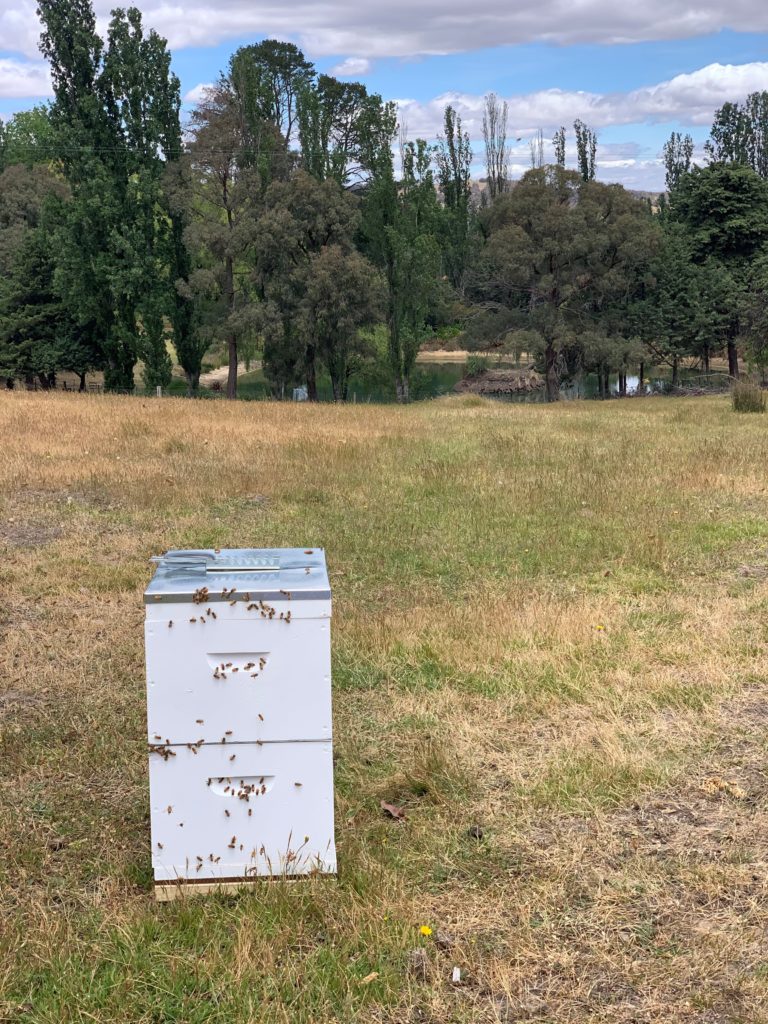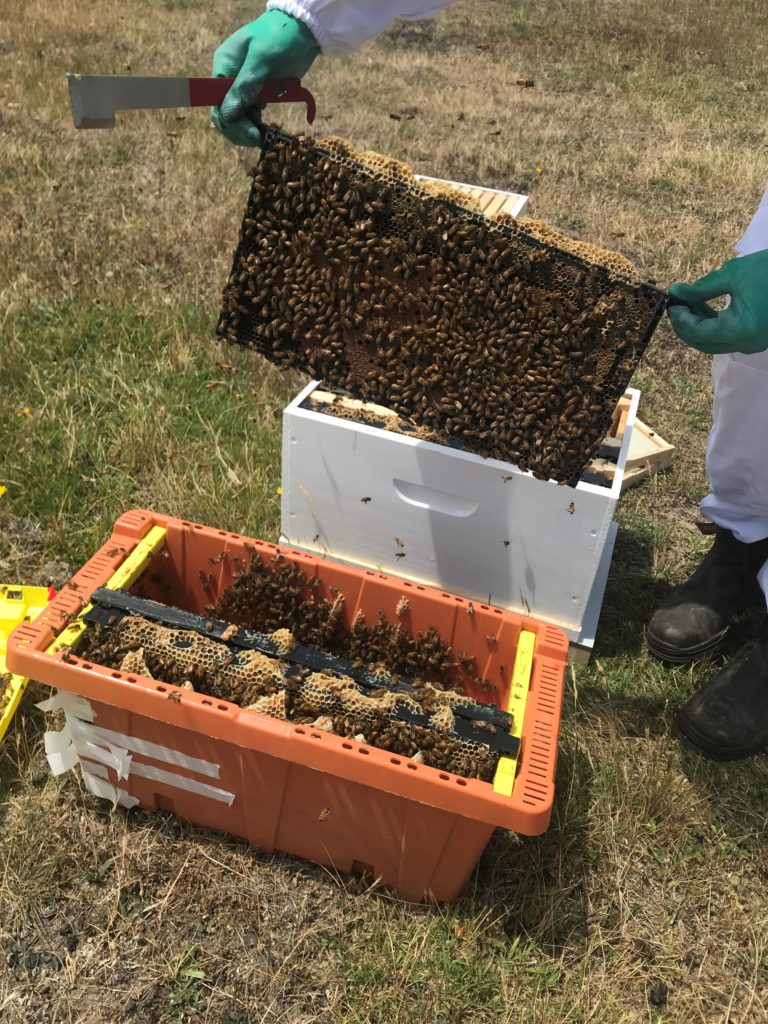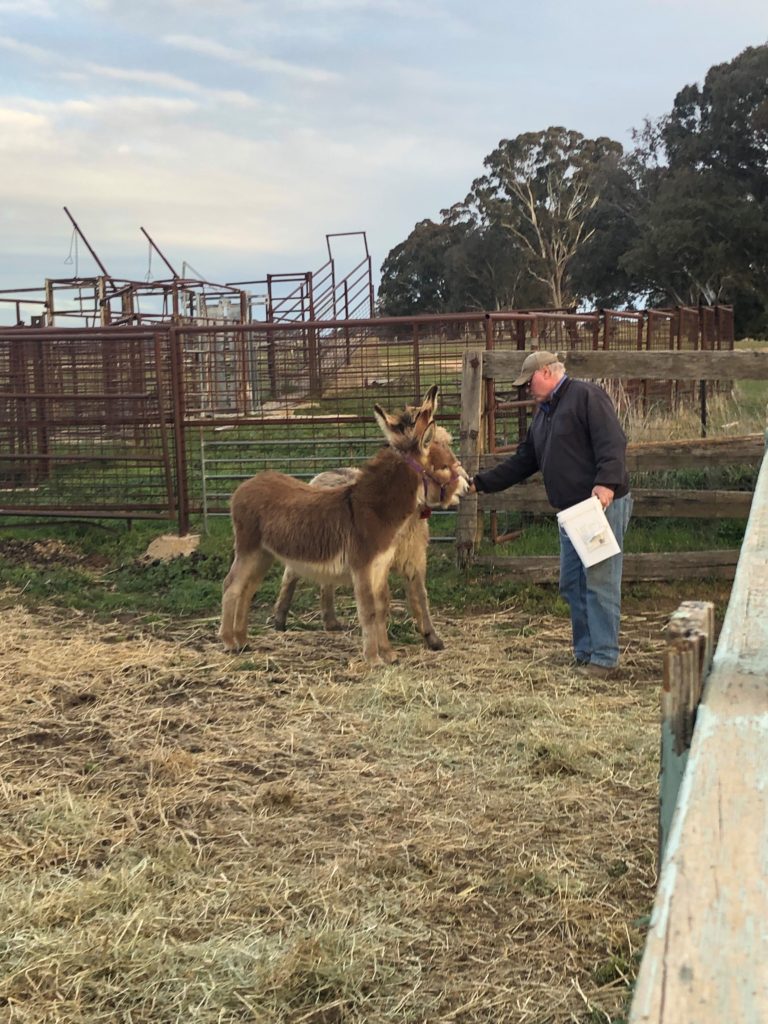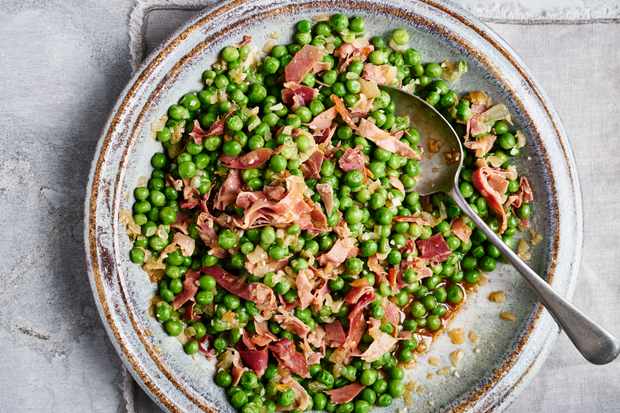Spring is one of our favourites times of the year at Markdale and we had plenty to celebrate with friends, colleagues and guests. Here are some of the highlights…
Wedding Bells!
We hosted a family wedding on the October long weekend.
The ceremony was held on the main lawn followed by drinks and a grazing table, as the sun set.
Guests then made their way down to a beautiful marquee on the polo field, illuminated by thousands of fairy lights, for the reception. The celebration was filled with fun, laughter and plenty of dancing long into the evening.
Open Garden
In celebration of National Gardening Week we held an Open Garden event on Saturday, 19 October. It was a wonderful day and a good chance for us to catch up with locals, travellers, new and returning visitors from country NSW, Canberra and Sydney.
Watch out for details of our next Open Garden in 2020 in the next seasonal update.
Spring Sundowner
We invited the neighbours over for an end of Spring sundowner last week and to also celebrate the start of the festive season.
Our staff and lovely neighbours enjoyed celebratory drinks and plenty of laughs along with some delicious ham and turkey!
Summer should be a time of growth on the farm. The long days and heat mean our pastures should grow and the sheep are feeding. The one element critical to this is of course water. On Markdale we have not experienced the drought as badly as others, however our dams are low and the pasture is not as strong as we’d like. The work is hard during the summer days and it often means early starts to avoid the searing sun in the middle of the day.
Drought still ravages the east coast of Australia and coupled with the bushfires on the NSW north coast there are many farmers whose livelihood and morale has been devastated. Many of these people are doing it tough – the very people who will farm much of the produce we all enjoy during the holiday season.
As Christmas and the holiday season approach we encourage everyone to support our rural communities. One such initiative we are getting behind as a family is #BuyfromtheBush – fantastic gifts from rural producers. Why not aim to do some or all of your gift shopping through this network. The other big thing people can do, as we said in our last edition, is to get out to rural towns and communities #StayintheBush. Take the kids for a weekend or a day trip, round up some mates and head to a gastro pub or take a road trip through our beautiful country towns.
Summer activities
- Our lambs have just been weaned and are out exploring, becoming independent and finding their way through Markdale all on their own four feet!
- Our cross bred lambs (white Suffolk/merino) will be sold off to be fattened for the butcher shop.
- The team will check all paddocks and water troughs, creeks and dams each week to monitor the water levels on the property.
- The sheep will be checked daily for flystrike.
- Weed control and eradication of invasive introduced plant species intensifies, namely blackberry, serrated tussock and Bathurst burr.
- Maintenance work continues on the farm as we consolidate much of the work done through the winter months.
- Our amateur beekeepers are monitoring our new beehive to ensure that our little honey makers have ample water and access to the flowers in our wonderful garden. Hopefully the first honey harvest (or raiding the hive) will occur in February.
- The family (and our farmstay guests) will take advantage of the pool and tennis court.
- Our summer crop includes tomatoes, broccoli, beans, beetroot, carrots and corn.
The beginning of Summer saw our garlic being harvested – Italian Red and Melbourne White varieties that we planted in late March. Pungent and fragrant they deserve to be the star of the dish.
The family loves them in the famous Italian recipe spaghetti algio e olio. This is the simplest of pasta dishes and a perfect late night meal.
The recipe below is for 3-4 people. Garlic is the hero of this dish so don’t be shy!
Ingredients
4-6 cloves of garlic crushed and chopped fine
A handful of chopped flat leaf parsley
Chilli flakes (to taste)
Salt and pepper
Olive oil (good lug)
Dried spaghetti
Method
Cook spaghetti al dente
Put the oil, garlic and chill flakes in a fry pan and heat on medium heat
Once the garlic start so to go golden turn off the heat and throw in chopped parsley
Toss through the cooked spaghetti with a small amount of the pasta water and season with salt and pepper
Serve with parmesan cheese and a crisp white or dry vermouth
We were very happy to welcome our first beehive last week!
Before the sun broke on Sunday our novice (but registered) beekeepers closed the nucleus box full of bees and drove from Sydney to the property. The ideal locations for the new hive were scouted – the bees need to be close to water and of course flowers. After careful consideration a decision was made to put the hive in the ram paddock behind the the homestead. As you can see from the photos this vantage point gives easy access to both the lake and the wonderful flowers in the garden. After allowing the bees to acclimatise to the environment for a few hours the queen and her colony were officially relocated into their new hive and left to settle in.
At Markdale we understand that bees are a critical part of our ecosystem and are integral in agricultural pollination as well as food production. Unfortunately however the global population of bees is in decline. Australia is experiencing the same issue very acutely at the moment given the drought conditions ravaging the east coast of Australia and the devastating bush fires. Our hope with our little hive is to increase the population of bees on Markdale Station, produce honey for our family, friends and guests and raises awareness about the positive impacts of bees on the environment.
Our bees were purchased through the Urban Beehive based in Matraville – we’d like to thank Doug and Vicky for their help and crash course on transportation! We’d encourage anyone who wants to find out more to visit their website (https://theurbanbeehive.com.au/).
Markdale has a fantastic team of people. Together with the family the Markdale team works hard to ensure our sheep are looked after, the lambs are cared for and the garden is maintained in pristine condition.
Each season we’ll introduce you to the team, and first up we have our Station Manager Allan.
Name: Allan Crain
Position: Station Manager
How long have you worked at Markdale?
4 and a half years.
What is your background?
I was born in Albury in NSW. My father was a local bank officer with Bank of NSW (now Westpac) and my mother came from the town of Bigga (the closest town to Markdale). We travelled to many towns with my father’s work, but we always spent time at my grandparents’ property at Bigga during the holidays and on long weekends. When I left school, I got a job at Thomas W. Green and became a wool classer. I classed in shearing sheds and also did work on a number of sheep properties around Bigga. After I married and started having children (3 beautiful daughters) I got into managing properties (mainly sheep) to spend more time with my family.
What is your favourite thing about Markdale?
The views of the countryside and friendly atmosphere on the property.
What is the one thing you would recommend guests visiting Markdale see or do?
I would recommend walking up the hill in the Bottom Shed paddock and looking back over the Homestead and surrounding gardens as it is shaped like a horse’s head.
What do you enjoy doing in your downtime?
Listening or watching rugby league or rugby union and spending time with my family.
Favourite book or movie?
Any good action movie and I enjoy reading books about sportspeople.
Who would play you in a biopic on your life?
If I had to pick someone, probably Clint Eastwood.
Given its lambing season we thought we’d share some fun facts about our wooly friends!
- The period of gestation for lambs is about 5 months.
- One ram will sire 70 to 90 lambs each season.
- Lambs are between 2 – 3 kilograms when born.
- Lambs can walk very soon after they are born.
- Lambs receive a 6 in 1 vaccine at 7 weeks, with a booster dose at 14 weeks.
- Lambs are dependent on their mothers until they are weaned at 3-4 months.
- Baby lambs have ‘playgroup’ every afternoon where they learn to play, interact and have fun. One or two of the ewes will watch the playgroup whilst the other mums rest or feed.
- Merino lambs are retained on Markdale for future wool production, and the merino/white suffolk cross lambs are sold for consumption.
- Young sheep are called ‘lambs’ until they get their first adult teeth at approx 14 months old – they are then promoted to hogget (‘teenager’) – they become an adult at 2 to 2.5 years old, when the next 2 adult teeth emerge.
- Markdale lambs are free range and essentially pasture fed.
Spring is a magical time on Markdale as the property emerges from the cold months and the ewes prepare to give birth to our lambs.
The two most important periods on the farm are shearing and lambing, and much of Markdale’s activity revolves around these two times. The ewes have now been moved into the paddocks with the best pasture in order to keep them strong as they give birth, recover and feed. A daily inspection is made of the ewes and lambs during this time and our team works hard to ensure the health of the entire flock. The cheeky foxes, pigs and the odd cold snap keeps everyone on their toes.
With so much happening it is a wonderful time to visit Markdale – there are literally thousands of lambs running around, our donkeys Nancy and Nelly are settled in and love being hand fed and the garden is emerging from its winter hibernation.
We also take the opportunity to remind our readers about the ongoing impact of the drought on many Australians especially those who are doing it tough in our rural communities. We would encourage everyone to get out and visit a country town or farm – not only is it beneficial for those towns and farmers, it is a great opportunity to understand where Australia’s produce and some of our country’s great characters comes from.
Spring activities
We are expecting 3,000 lambs on the ground from late August – early September.
Weed control and eradication of invasive introduced plant species. This includes ground spraying for serrated tussock and blackberry bushes, spraying by helicopter of harder to reach areas and burning of dead blackberry bushes
Maintenance work continues on the farm as we consolidate much of the work done through the winter months.
On the October long weekend we have a family wedding on Markdale with the ceremony being held in the garden and reception in a marquee on the Polo Field.
On Saturday, 19 October Markdale is holding an Open Garden between 10am – 4pm. Entry is $5 and visitors can explore the Edna Walling garden and pack a picnic.
A beehive will be introduced to the garden in late October. We are looking forward to trying how the beautiful flowers in our garden flavour our honey.
Spring veggies including tomatoes, chillis, pumpkin, zucchini, cucumber, silverbeet and strawberries have been planted.
One of the joys to come out of the Winter veggie patch were our fresh baby peas. Sweet and crunchy they were good enough to simply shell and eat raw. We wanted however to share an ‘unusual’ side of dish of peas and lettuce that is popular in France and our table, and goes fantastically with roast chicken or fish accompanied by something white and sharp.
Ingredients
2 – 3 handfuls of freshly shelled peas
1 brown onion (diced finely)
100gms of pancetta (cut into strips) *note that bacon or lardons will also work
1 iceberg lettuce (washed, cored and shredded)
2 cups of good quality chicken stock
Handful of mint
Good knob of butter
Method
Step 1 Melt butter with a little olive oil in a heavy based fry pan over a medium heat.
Step 2 Add onions and pancetta and cook until onions are soft.
Step 3 Adds peas, mix and then add stock and bring to the simmer. Reduce by a third. Season with some white pepper *note pancetta and the stock are salty so there may be no need to add additional salt.
Step 4 Add lettuce and mint. Mix through the warm stock. Cook for 1 min until lettuce begins to welt.
Step 5 Ladle into a serving bowl (including broth) to be eaten immediately.
At Easter this year we travelled to Berrima to visit Eagle Rock Farm with the hope of buying some donkeys for our Farm Stay guests. After careful consideration and much hee-hawing, two young female donkeys were chosen – Nancy and Nelly.
The pair are named after people dear to the family and they will be joining us in a few short weeks.
The loveable pair don’t talk back as much as “Donkey” from Shrek but love to be fed and patted. Our Farm Stay guests are more than welcome to introduce themselves and take them over a vegetarian treat, carrots preferred!
In celebration of the new additions we headed to Bertha’s in Bowral for a meal – a new spot by the Biota restaurant. We highly recommend popping in if you are in the area or better yet on your way to Markdale. The smoked meat burgers and mac and cheese were an inter-generational hit!
As autumn approached the last of the summer veggies were removed – including our fabulous and abundant tomatoes. Left with a few kilos of green tomatoes we decided to try our hand at a chutney in anticipation of ploughman’s lunches.
Outlined below is our very simple recipe – brought together from various sources and best attempted with a glass of wine in hand. Lots of old jars are required.
Ingredients
2kg of green tomatoes (chopped – cut the small ones in half and the bigger ones into quarters)
*note we used a mix of varieties including cherry, yellow pear, black Russian and mortgage lifter
2 brown onions (chopped)
3 green apples (peeled, cored and chopped)
1½ cups brown sugar
2½ cups of malt vinegar
½ cup of apple cider vinegar
1 tablespoon salt
2 tablespoons of mixed spice
2 tablespoons of mustard seeds (yellow)
2 red chilli (finely sliced)
Method
Step 1 Mix together all ingredients in a heavy based pot.
Step 2 Bring to the boil and reduce to a simmer to between 1 – 1½ hours. The chutney should be thick with very little excess liquid.
Step 3 Spoon the hot chutney into the sterilised jars. Seal. Cool. Refrigerate.
The chutney should keep for 3+ months and will last for up to a month after opening if refrigerated.
Tip
The jars can be sterilised a number of ways (google will help) – we found heating them in a 120 degree oven for 15 – 20 minutes the easiest.












